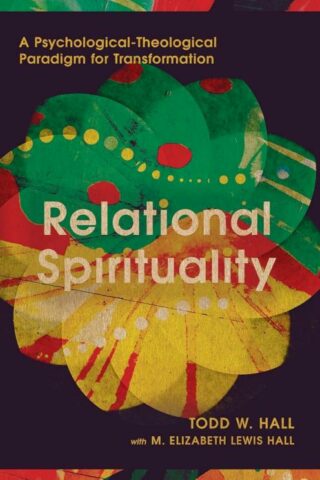M. Elizabeth Lewis Hall
Showing the single result
-
Relational Spirituality : A Psychological-Theological Paradigm For Transfor
$40.00As our society becomes more socially fragmented, many Christians feel disconnected and struggle to grow spiritually. Common models of spiritual transformation are proving inadequate to address “the sanctification gap.” In recent decades, however, a new paradigm of human and spiritual development has been emerging from multiple fields. It’s supported by a critical mass of evidence, all pointing to what psychologists Todd W. Hall and M. Elizabeth Lewis Hall call a relational revolution.
In Relational Spirituality, Hall and Hall present a definitive model of spiritual transformation based on a relational paradigm. At its heart is the truth that human beings are fundamentally relational-we develop, heal, and grow through relationships. While many sanctification models are fragmented, individualistic, and lack a clear process for change, the relational paradigm paints a coherent picture of both process and goal, supported by both ancient wisdom and cutting-edge research. Integrating insights from psychology and theology, this book lays out the basis for relational spiritual transformation and how it works practically in the context of relationships and community.
Relational Spirituality draws together themes such as trinitarian theology, historical and biblical perspectives on the imago Dei, relational knowledge, attachment patterns, and interpersonal neurobiology into a broad synthesis that will stimulate further dialogue across a variety of fields. Highlighting key characteristics of spiritual communities that foster transformation, Hall and Hall equip spiritual leaders and practitioners to more effectively facilitate spiritual growth for themselves and those they serve.
Christian Association for Psychological Studies (CAPS) Books explore how Christianity relates to mental health and behavioral sciences including psychology, counseling, social work, and marriage and family therapy in order to equip Christian clinicians to support the well-being of their clients.
Add to cartin stock within 3-5 days of online purchase











